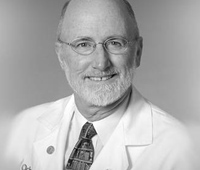Health
Obesity Presents Higher Risks for Cancer
 Louisiana State University’s Pennington Biomedical Research Center recently announced a 5-year, $10 million research grant to study the comparative effectiveness of obesity treatment options for underserved populations in primary care settings, of which Ochsner Health System will take part.
Louisiana State University’s Pennington Biomedical Research Center recently announced a 5-year, $10 million research grant to study the comparative effectiveness of obesity treatment options for underserved populations in primary care settings, of which Ochsner Health System will take part.
We’ve all heard the warnings about obesity and its health risks, yet many of us keep gaining weight. According to the CDC, more than one-third of U.S. adults, or 35.7% are substantially obese.
This important public health issue is now epidemic. An adult who is overweight has a body mass index (BMI) of 25.0 to 29.9. An adult who is obese has a BMI of 30.0 or more. To find your BMI, use a BMI calculator.
You may already know that obesity is linked to high blood pressure, diabetes, heart disease, stroke, arthritis, and harmful cholesterol. But recent research has revealed one major finding you may not know: Obesity can raise some cancer risks.
As many as 84,000 cancer diagnoses are linked to obesity each year, according to the National Cancer Institute. Results from a 2003 study of more than 900,000 American adults, published in the New England Journal of Medicine, revealed that the heaviest participants were more likely to develop and die from cancer than participants who were at a healthy weight. The study authors went on to conclude that excess fat “could account for 14% of all deaths from cancer in men and 20% of those in women.”
Researchers with the National Cancer Institute have determined that certain cancers of the breast (occurring after menopause), the lining of the uterus (endometrium), colon and rectum, and other cancers of the kidney, esophagus, pancreas, thyroid, and gallbladder, are also increased in obese individuals, and are strongly associated with obesity and physical inactivity.
In a new position paper by the American Society of Clinical Oncology (ASCO), it is noted that “obesity is a major, under-recognized contributor to the nation’s cancer toll and is quickly overtaking tobacco as the leading preventable cause of cancer.”
As others have noted, the key word here is “preventable.” Cancer discussions should include a look at patients’ BMI – where they are, and possibly where they should be. Obesity and weight concerns are preventable.
During October, our attention turns to breast cancer awareness. According to a AICR/WCRF “Policy and Action for Cancer Prevention” report in 2009, the following are estimated percentages of annual US cancers caused by excess body fat:
Breast: 17%, 33,000 cases
Esophagus: 35%, 5,800 cases
Pancreas: 28%, 11,900 cases
Gallbladder: 21%, 2,000 cases
Colorectal: 9%, 13,200 cases
Endometrial: 49%, 20,700 cases
Kidney: 24%, 13,900 cases
In 16 years, cancer will become the leading cause of death in the United States, surpassing heart disease, according to a report from the American Society of Clinical Oncology. The number of new cancer cases is expected to increase nearly 45% by 2030, from 1.6 million cases to 2.3 million cases annually.
Our challenge now is to control weight and subsequently reduce some cancer risks. The link between obesity and cancer is a fascinating and eye-opening discovery in the field of medicine. As research, like what is being done right here in Louisiana, continues, we hope to get closer to further understanding the complex causes and links behind cancer.
Jay Brooks, MD, CHAIRMAN OF HEMATOLOGY/ONCOLOGY OCHSNER-BATON ROUGE Dr. Brooks earned his medical degree from LSU, completed his residency at Charity Hospital in New Orleans and his fellowship at the National Cancer Institutes Warren Grant Magnuson Clinical Research Center in Bethesda, Maryland. He is board certified in internal medicine and medical oncology as well as by the American Board of Internal Medicine-Medical Oncology. Dr. Brooks has written many articles for scientific medical publications as well as chapters for several oncology textbooks. Dr. Brooks' expertise is in lung cancer, breast cancer treatment and prevention, and cancer genetics.


0 comments